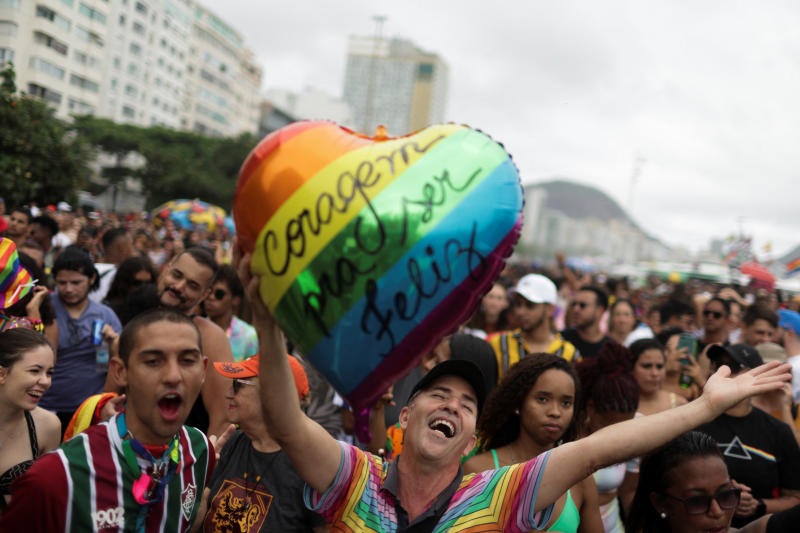
As Singapore lifted a colonial-era ban on sex between men while also taking steps to block marriage equality, AFP looks at dozens of countries that still criminalise the LGBTQ community:
– Punishable by death –
Homosexuality is still prohibited in 69 countries, including 11 where it is punishable by death, the International Lesbian, Gay, Bisexual, Trans and Intersex Association (ILGA) said in a 2020 report.
The most repressive countries are in Africa and Asia.
The death penalty is still applied in Mauritania, parts of Nigeria, Saudi Arabia, Yemen and in Iran, where two women LGBTQ rights activists were sentenced to death in September on charges of promoting homosexuality.
Being gay is also theoretically punishable by death in Pakistan, World Cup host Qatar, Somalia and the United Arab Emirates, even if the maximum penalty is not applied in practice.
In Afghanistan, where gay men were stoned to death or crushed by toppled walls under the first Taliban regime from 1996 to 2001, the returning fundamentalists have again outlawed homosexual relations but not said how LGBTQ people would be punished.
Elsewhere, the tiny, immensely rich monarchy of Brunei drew international outrage in 2019 when it introduced death by stoning for gay sex and adultery, part of an extreme version of sharia or Islamic law. Brunei’s sultan later said the harsh measures would not be enforced.
– Stiff jail sentences –
Around 30 African countries ban homosexuality, with most applying stiff prison sentences.
In The Gambia, Kenya and Tanzania, LGBTQ people face maximum jail terms ranging from 14 years to life imprisonment.
According to ILGA’s report, homosexuality is still illegal in half of all Asian countries, with punishments ranging from several years incarceration in Myanmar and Kuwait to 20 years in prison in Malaysia or life imprisonment in Bangladesh.
In Latin America, Guyana is the only country where homosexuality is still outlawed, with the law providing for a maximum sentence of life imprisonment for sodomy, although it is not applied in practice.
– Repressive laws repealed –
Changes are afoot in many countries to improve LGBTQ rights.
In 2018, India’s Supreme Court struck down a rarely-enforced statute introduced by the British more than 150 years earlier that criminalised gay sex and threatened people in consensual same-sex relationships with up to a decade in prison.
The court went further on Nov 25, when it agreed to hear a case brought by a gay couple seeking equal marital rights. If the court rules in their favour, India would become just the second Asian jurisdiction to recognise same-sex marriage after Taiwan.
South Africa was the trailblazer on the African continent, banning discrimination on the basis of sexuality in its landmark 1996 post-apartheid constitution and legalising same-sex marriage a decade later.
Change has come more slowly in other African nations. Lesotho, Mozambique, the Seychelles and Angola are among those to have decriminalised homosexuality while nearly a dozen other countries had never banned it in the first place.
– Rights rolled back –
A handful of countries have bucked the global trend towards ending the persecution of LGBTQ people by implementing new, repressive laws.
In Russia, homosexuality was considered a crime up to 1993 and a mental illness until 1999. After 20 years of progress, lawmakers turned back the clock in 2013 by approving a law punishing gay “propaganda” among minors.
On Nov 24, Moscow extended that rule to adults, with lawmakers unanimously approving a bill banning all forms of LGBTQ “propaganda”.
In Hungary, a law passed in 2021 bans any content that is seen as promoting homosexuality or gender change in schools.







